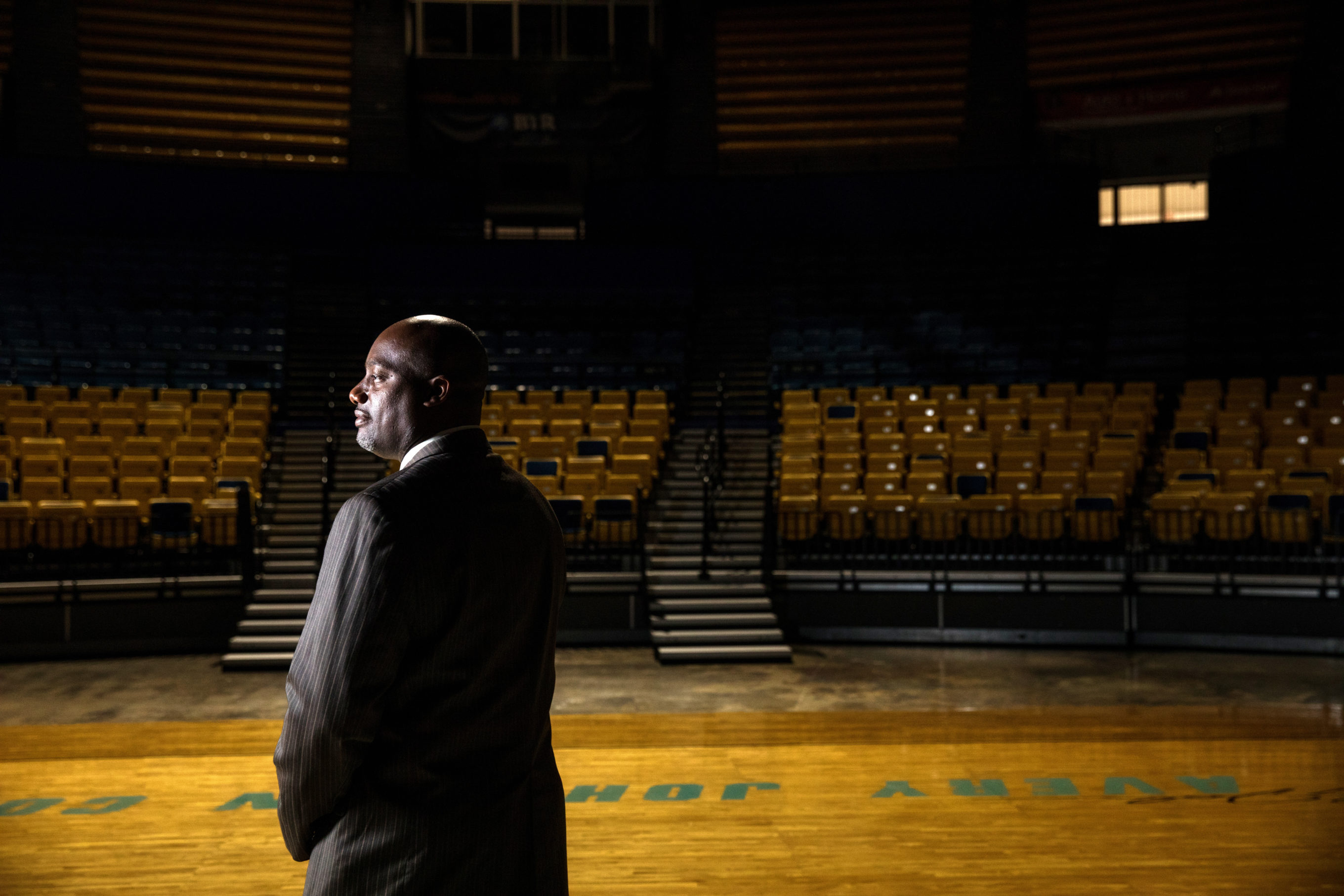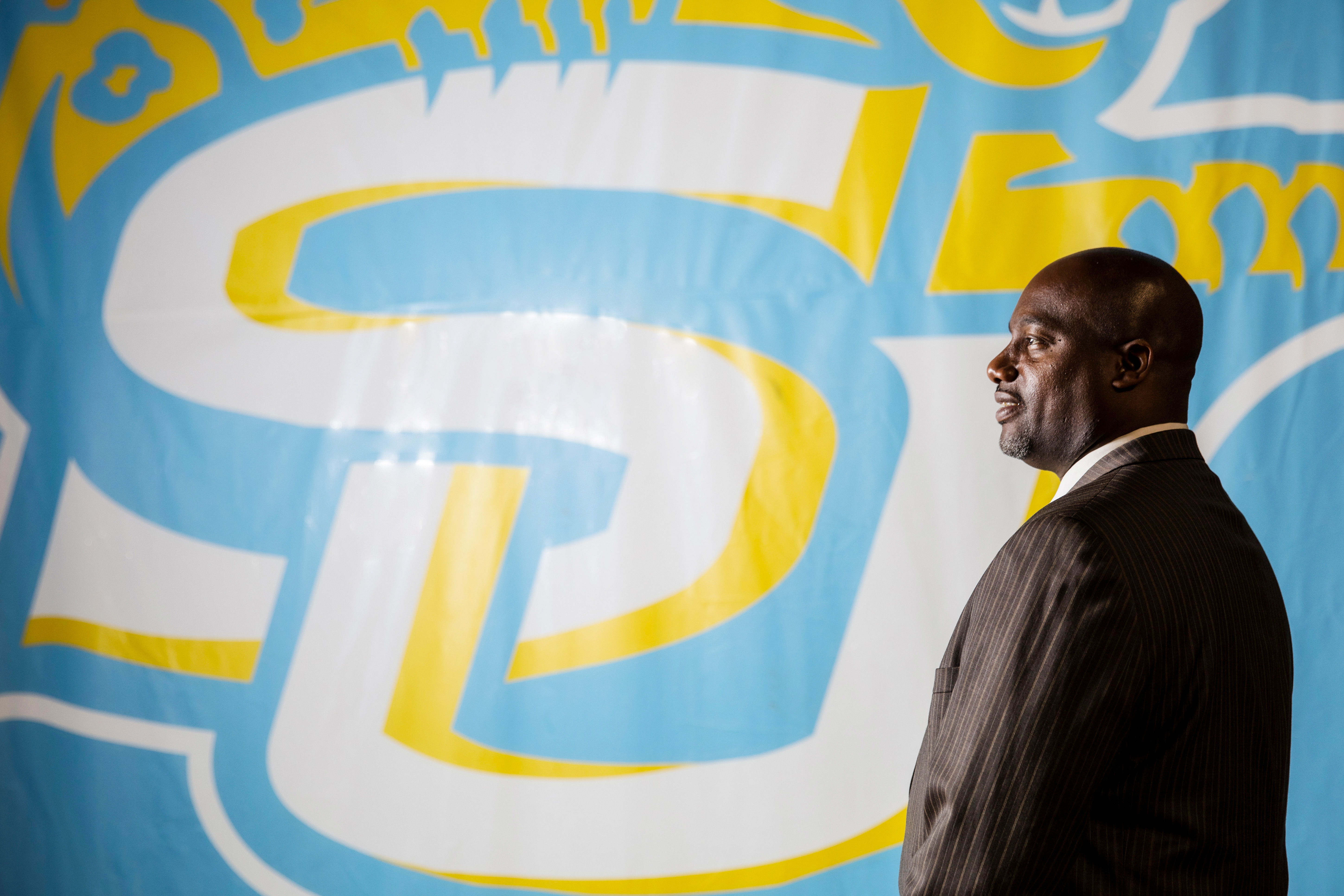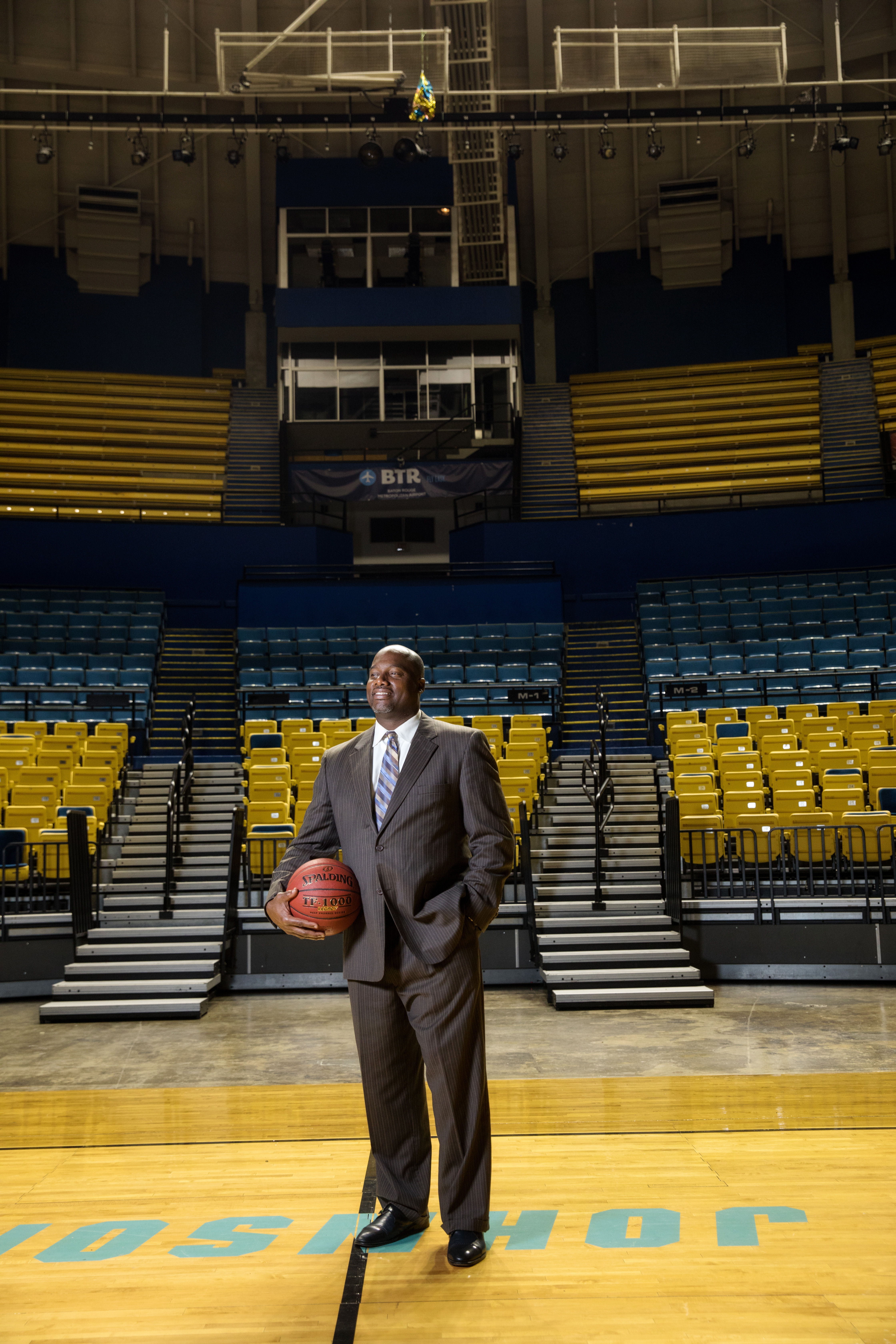
Roman Banks gave up his first love as a basketball coach to revive Southern University’s athletic program from an academic fiasco
Twenty minutes before Southern University’s opening tip against Tulane in 2013, head basketball coach Roman Banks is approached on the court by NCAA officials.
They tell him six of his players are ruled immediately ineligible because the association doesn’t have proper records on them.
Banks and his assistants are dumbfounded. They scramble to their offices and scrounge up enough paperwork in time to get three of those players restored for that night’s contest.
|
|
While they hardly have time to process everything that’s unfolding that evening, they certainly don’t see what’s coming next.
“They came back two weeks later and said the whole athletics department was on an ‘unusable data’ ban,” Banks recalls today. “That’s when the worst of the worst started.”
The NCAA is about to open Pandora’s Box on the university. By the end of the year, athletic programs across the board at Southern are put on a probation.
Teams are banned from postseason play. Practice times are limited or cut completely. Athletes are forced to transfer from the school.
On top of that, enrollment numbers at the university are dipping, funding is lacking and even state subsidies are tight. It is a dark time for the Jaguars.

“At that point, we were just trying to make it,” Banks says now. “The institution almost went through a bankruptcy at one point. I just think with that being in place and laying people off and different things, that athletics and the university was in total chaos.”
The basic problem at Southern back then—which has since been documented by many news outlets—is that record-keeping was in shambles.
Banks summarizes it simply with a single anecdote: The athletic department would have a student listed as a business major, taking business classes. Back at the campus registrar’s office, that same student was listed as a psychology major.
The NCAA bases its certification for athletes on records from the registrar’s office, not those of the athletic department. So the students appeared to not be earning appropriate credits toward their degree, when in actuality they were.
“It was just poor communication and people not understanding the business of the NCAA or how they go about keeping their records,” Banks says. But there was no easy fix. “You can’t just transfer somebody in here to be an academic counselor for athletics compliance. You’ve got to know all the rules and the spirit of the rules.”
Banks calls the situation “an embarrassment” for the university. But dire as circumstances were, the school’s redemption story today is all the more fulfilling because of it.
Administrative turnover followed—including three university presidents in five years. Banks was asked to take over as interim athletic director in the spring of 2015. He’d retain his duties as basketball coach at the same time.
He was one of the few members of the staff familiar with NCAA regulations, and he had a proven track record, having already raised his basketball team’s low APR scores in his first year at Southern.
“I’m not going to say the athletic directors before me didn’t know what they were doing, because I think they were trying to push it [in the right direction],” Banks says. “But the spirit of cooperation evidently wasn’t there because of a broken-down system. Financial aid, admissions, registrar’s office, the certifying process—all those people have a role to play in your membership with the NCAA. That’s why one thing we had to do was educate the campus on how to properly go about doing business.”
That was step one: Keep the ship from sinking while training administration staff on the NCAA’s processes.
Banks credits Travin Scott—the now-executive athletic director who came on as an academic counselor while Banks was interim AD—and university President Ray Belton for getting staff up to speed on procedures required to remain eligible. Slowly but surely, the results began to show.
“When you’ve got the top people knowing it needs to be changed, it made it easier to domino down,” Banks says. “The NCAA loves [Belton’s] leadership. He’s been real aggressive in making sure all departments are working in spirit with the athletic department. He understands that there’s no special treatment for athletics. We’re an NCAA Division I membership, and there are a lot of things that are required.”
Banks eventually gave up the “interim” portion of his athletic director title, sacrificing his first love as basketball coach for the greater good of getting the university he loves back on good terms with the NCAA.
He’s been on the job full-time for a year now, and for the first time since the inception of APR scores, all 15 of Southern’s athletic programs are NCAA eligible.
“I would never have thought I’d be the athletic director, because I was passionate about basketball,” Banks says. He admits he turned down several other offers to be an assistant coach at bigger programs that could have paid him upwards of $400,000 or $500,000.
“Southern might not ever be able to pay me the money that I might have been making somewhere else, but I’m rich in my decision,” he says. “God brought me here through basketball, but it was destiny to get me here. It might not be the best decision when you start talking about pay and all that, but it’s the best decision in my life for me because I think there’s another reward. You’ve got earthly rewards, and I think you’ve got heavenly rewards. And I just think that those two combinations will make me rich some type of way.”
Once Southern became fully eligible again, the NCAA placed the university under a five-year probation period to closely monitor its progress.
Three years of probation remain, but Banks doesn’t foresee any issues moving forward.
Right now, the Jaguar football team is starting its 2018 season with a packed September, including the homecoming game Sept. 29 against Alcorn State. The men’s and women’s basketball teams hit the courts for season openers in November.
It’s a remarkable transformation for a university program that was in such disarray, seemingly without an end in sight. And as much as the administration can be credited for the resurgence, there’s one pivotal group that Banks says cannot be overlooked.
“The student athletes haven’t been praised enough,” he says. “After going through the embarrassment they went through about being labeled like they weren’t doing their work. That’s really unfair to them. The ones that didn’t leave, they sacrificed a lot and stepped up to the plate for Southern University. That group of student-athletes will always be recognized. Some guys have won championships here, but [these athletes] did more than that for the university. They stepped up academically and became leaders and got us all back to academic accountability, which is great.”
This article was originally published in the September 2018 issue of 225 Magazine.
|
|
|


